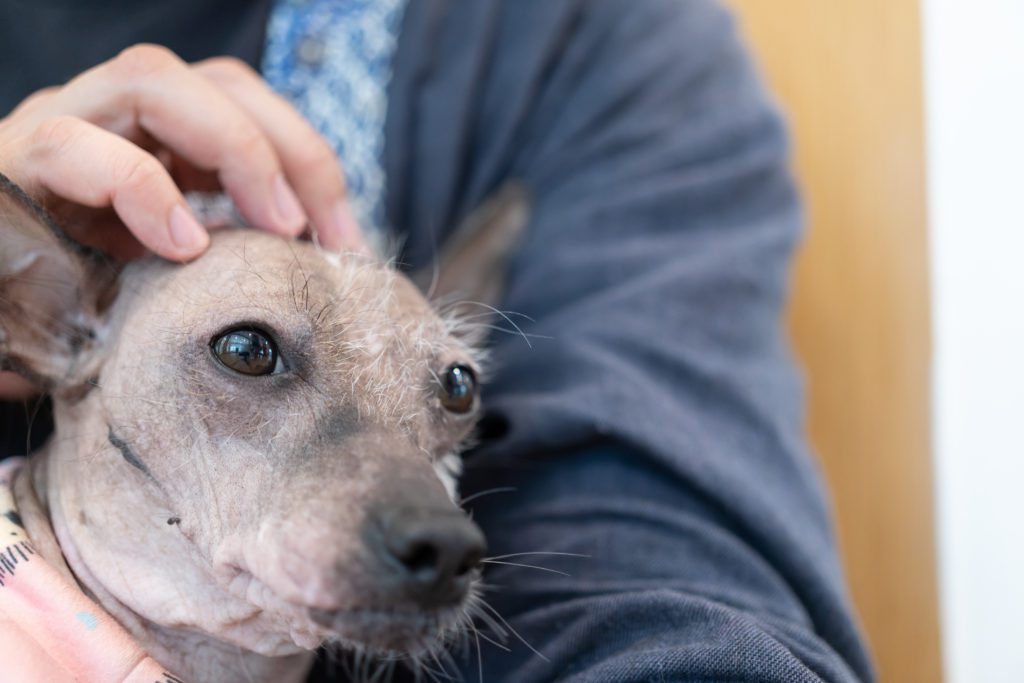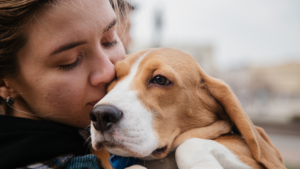As a pet owner, have you ever sat and pondered about your pet? Maybe they’re starting to act out or even withdraw. No matter what their behavior, or lack of, the reason behind what they’re doing could very well be due to a medical problem which is where a medical intuitive could prove to be very helpful.
Having a pet is one of life’s greatest blessings, but because of the communication barrier, it can become difficult at times. What if you could sit with your pet and ask them questions about their behavior, health, likes, dislikes, or just things that you are curious about? Well, you can!
A medical intuitive is an alternative medicine practitioner, who uses their intuitive abilities to find the cause of a physical or emotional condition through the use of insight rather than conventional medical diagnostics. Other terms for this practice include medical clairvoyant, medical psychic or intuitive counselor. These practitioners do not diagnose or treat medical conditions. They can, however, offer insight from a unique perspective that often adds useful information when used in conjunction with conventional medical diagnostics. It is one tool that can be added to your overall wellness protocol.
What Do Medical Intuitives Do?
Medical intuition focuses on visualization skills and intuitive and innovative scanning to obtain information from the physical body and its energy systems. It is designed to assist health care providers in a cost-effective, targeted approach to a patient’s presenting concerns, and is not meant to serve as a diagnosis of illness or disease. Studies have shown that medical intuitives have strong, subjective accuracy rates in identifying primary and secondary health issues. Additionally, their services are positively evaluated in the context of an individual’s concerns regarding their health.
History Of Medical Intuition
Edgar Cayce (1877–1945) was one of the most well-known medical clairvoyants. He was said to be able to discern the health conditions of people, and in many cases, heal them of their affliction. Many of the treatments that he developed are still used today.
In some cases, medical intuitives have been hired by hospitals, clinics, and medical offices, particularly in California. Some medical intuitives also work with M.D.’s.
How Can An Animal Medical Intuitist Help?
When a human visits a medical professional, they often engage in an extensive intake interview where the doctor can ask in-depth questions about how the patient feels. This interview helps the physician narrow down potential causes and develop the next steps for testing and diagnostics. As many animal owners can attest, veterinary diagnostics can be a very hit-or-miss process, expensive and frustrating. It can be difficult for a vet to focus on the root cause based only on our visual observations. An animal is not able to verbalize his physical sensations such as:
- “My throat feels raw when I swallow.”
- “The pain feels sharp in my left upper hip and radiates down my leg.”
- “I feel a rapid flutter in my chest”
- “I feel the pain in my right front hoof. It feels fine at the walk but the pain starts when I canter”
- “I feel nauseous and low on energy”
When a horse exhibits lameness it can often be difficult to tell which limb is the cause. Narrowing down the focus onto one limb can save everyone a lot of time and money.
Clients often consult an animal communicator/medical intuitive prior to a non-emergency vet visit to collect information that will help the vet to zero in on the root cause and reduce the number of tests required. By locating sensations during an intuitive scan of the body, an animal communicator can report details of pain location, intensity, and quality. These details help the pet owner and their medical care team to discover symptoms that are not visible to us and to refine the treatment plan.
Regular “check-in” with a communicator can be useful to monitor the well-being of a pet during a course of treatment by asking the pet about pain levels, appetite, and other symptoms.
Pet owners also consult a medical intuitive to help them assess the quality of life of their senior pet as they navigate the challenges of old age.
As an animal communicator and animal medical intuitive, I use a scanning technique to feel what the animal is feeling in his physical body. As an empath, I feel the physical and emotional feelings of the animal in my own body reporting sensations of pain, pressure, headaches, nausea, itching, vision disturbance, hearing loss, dental issues, joy, sadness, lethargy, difficult respiration, etc.
Contacting an animal medical intuitive should never be your first choice in any emergency situation. Always contact your vet or local emergency clinic first. The intuitive work can complement your conventional veterinary care but never replace it.



